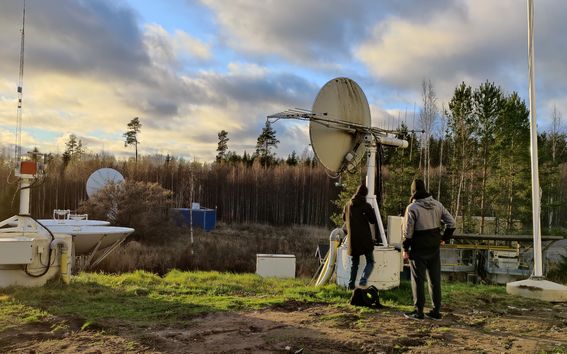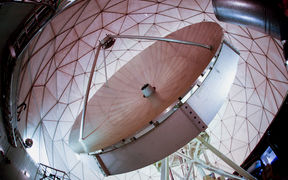Collaboration between general upper secondary schools and universities is important

At the final event of the Tutki-Kokeile-Kehitä competition (TuKoKe, ‘explore, experiment, develop’), which was organised jointly by Development Centre Opinkirjo and Academic Engineers and Architects in Finland TEK, a special prize was awarded for an entry involving exemplary collaboration between a general upper secondary school and a science university. The prize was given to Taavi Väänänen and Atte Kapanen from Helsinki School of Mathematics, their instructor Teppo Harju as well as their partner Joni Tammi from Aalto University Metsähovi Radio Observatory.
With this special prize, Development Centre Opinkirjo wants to encourage all general upper secondary schools to offer research courses and to bring students in direct contact with researchers in different fields.
The prize winner was chosen by Minna Riikka Järvinen, Executive Director at Opinkirjo, after interviewing the competitors.
‘Their work is an excellent demonstration of the collaboration between general upper secondary education and higher education that is included in the curriculum and science studies of general upper secondary schools,’ Järvinen explains her decision.
According to Järvinen, the teacher of the research course Teppo Harju has guided the students in an exemplary manner to collaborate with Joni Tammi, Director of Aalto University Metsähovi Radio Observatory.
‘The students had access to Metsähovi's open data and a problem to solve that no one had previously studied. At Metsähovi, the students were able to see how the devices function, familiarised themselves with the work of engineers and researchers, and saw in particular what it is like to work on a scientific project. It was great to see the enthusiasm of the students and how they developed during the project’ Tammi says.
You can read the news on the website of Opinkirjo (in Finnish)
Metsähovi Radio Observatory
Metsähovi Radio Observatory is the only astronomical radio observatory in Finland. Metsähovi’s main instrument is the 14-metre radio telescope, which is used around the clock, every day of the year. Its observational data is used, e.g., for studying active galaxies, the Sun, and the rotation of the Earth.

Read more news

Join the Unite! Virtual Education Summit- Registration now open
Join us in shaping international collaboration! This online event takes place 12 March, 2026.
Apply Now: Unite! Visiting Professorships at TU Graz
TU Graz, Austria, invites experienced postdoctoral researchers to apply for two fully funded visiting professorships. The deadline for expressions of interest is 20 February 2026, and the positions will begin on 1 October 2026.
Elina Pyylampi wants to combine renewable energy solutions and commerciality
The first-year student in Electrical Power and Energy Engineering wants to work with renewable energy and electrical systems.






